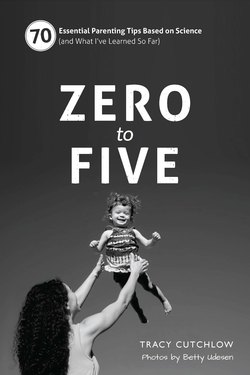Читать книгу Zero to Five - Tracy Cutchlow - Страница 11
На сайте Литреса книга снята с продажи.
ОглавлениеExercise thirty minutes a day
If you work out, keep it up. If you don’t work out, start.
Doctors used to tell pregnant women to go easy on the exercise. Turns out they were being conservative because so few studies had been done on exercise during pregnancy.
More recent research shows that exercise is so beneficial, it outweighs the miniscule potential risk to baby’s health. Signs of risk to the baby don’t even begin to show up until you’re exercising at a level that feels like an all-out sprint.
Benefits for mom and baby
Exercise benefits the brain, not just the body:
• Exercise increases blood flow, which stimulates the body to make more blood vessels. More blood vessels give the brain more access to oxygen and energy.
• Aerobic exercise also increases BDNF (brain-derived neurotrophic factor), a chemical that grows new neurons. BDNF helps keep existing neurons going by making them less susceptible to damage and stress.
• BDNF karate-chops the toxic effects of stress hormones, including cortisol. In turn, baby’s stress-response system and limbic system can develop normally.
Cardio beats weights
Strength training doesn’t affect the brain like aerobic exercise does. A combination is great, but if you’re pressed for time and energy, go with aerobic exercise. Swimming tops the list. The water supports your weight and disperses excess heat from your belly. The exercise works your entire body. Even if you’re just bouncing along in the pool during senior swim, you’ll feel so much better. Your impressively swollen ankles will, too.
Listen to your body
How much exercise is too much? Not enough research has been done to know for sure. Maybe that’s why everyone says: Listen to your body.
I thought pregnant women weren’t supposed to go running or bicycling, so I cut back on exercise when I got pregnant. Soon, I didn’t feel healthy. Mid-pregnancy, I went back to my active lifestyle, respecting my mood in terms of how intensely I exercised. I felt so much better. For me, around eight months pregnant was the right time to scale back and just stroll around the neighborhood.
THE RESEARCH
Pregnant women—not used to working out—began exercising four times a week for forty-five to sixty minutes at a time. They started at about 12 weeks pregnant and continued through 36 weeks, doing things like hilly walks and step aerobics. Compared with women who didn’t exercise, the exercisers were more fit, fewer had C-sections, and they recovered more quickly after delivery. In another study, women who were 28–32 weeks pregnant ran on a treadmill to exhaustion, and the babies experienced only a brief blip in heart rate and blood flow.
What will you do for exercise? Be specific about the day and time.
